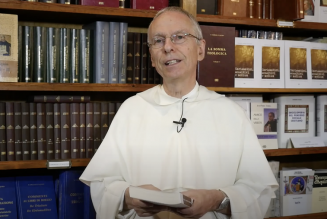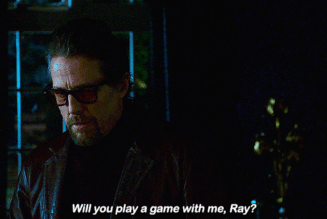How our young people date is problematic; and I’m not talking about the mainstream habits of a ‘hookup culture.’ I mean young people from families with traditional values, where preparing for marriage and waiting for marriage are implicit, accepted goods.
It is not surprising that we have a problem. I think we have a perfect storm in the combination of three things: a legitimate desire to emphasize and pursue marriage; the extraordinarily bad societal habits and examples regarding romance; and, the fallen inclinations of human persons. Allow me to explain.
In being around college aged young adults from good families, I’ve had occasion to notice and reflect on these things for some three decades; and I still have much thinking to do. But here are a few thoughts regarding romance and dating in the teen and young adult years. The matter of adult dating requires separate treatment.
The first ingredient in the perfect storm arises both from human nature itself and from a legitimate response to our age: we need to prioritize marriage while others are setting it aside. Parents want their children to think in terms of the great good of marriage, and well-raised young people are often ready and excited to oblige. So far so good.
Then enter the second factor. When a young person asks himself what dating looks like, he cannot but look around and take note. Now a well-formed, intentional soul immediately recognizes that he should do things differently. But here is a key moment. In short, while he resolves to do things better, he is in fact poorly positioned to do so for two reasons. First, his notion of dating (often even in the best-case scenario) is formed negatively, in reaction: i.e., I won’t do it the way others do it. Second, despite having received a good upbringing, our teens and young adults as a rule have notably less maturity and responsibility than prior generations even in recent memory. This last point is, in my judgment, often overlooked.
The third factor in the perfect storm always has been and will be at work in this realm. Yet it behooves us to take special note of it in view of the just mentioned second factor. I will be direct. What we can call concupiscence, a complex reality heightened by hormones, is seriously aggravated by both the bad customs of our age and the immaturity of our young people, which often includes lack of self-esteem and a craving for affirmation.
What, in my experience, is the upshot of this perfect storm? I do not want to overstate the problem. I have seen many young people—albeit rarely below the age of twenty—engage in mature, honorable courtship. Here I use ‘courtship’ and ‘dating’ interchangeably to mean a sustained relationship pursued as discernment and preparation for marriage. But my experience has likewise shown the difficulty and serious dangers of pre-mature or immature dating.
I want to be clear: while maintaining chastity is of course a central concern it is far from the only one. My focus is broader, namely, what it takes for dating to be precisely what it can and should be–a fitting discernment and proximate preparation for marriage. Sure, perhaps the course of true love never did run smooth. But it is our task and indeed solemn obligation to do all we can to form young people such that the course be as honorable and fruitful as possible.
Here I want to open what I hope will be a sustained discussion. Allow me again to emphasize that this reflection is specific to communities that prioritize marriage and appropriate preparation for it. My contention is that we are notably failing our young people in forming and guiding them toward optimal courtship.
I will simply note two aspects in view of my earlier comments. First, we are not giving them the tools to know when they are ready to date, and so too many commence too soon, e.g., even while still in high school. In my experience, it is in fact rare that even students in the first year or two of college are really ready. Second, we are not giving them a positive vision of how to date, and so too many go about dating with little sense of what they’re supposed to do other than avoid unchastity.
I understand this makes for a serious problem; indeed, that is my point. One might well ask: But when young adults are physically ready—i.e., at an age that arguably they should be psychologically and morally ready too—how can we ask them to hold off? There is of course no easy answer to this question, and certainly less-than-ideal solutions might just be in order. Yet in any case this much is clear: we need to come to grips with these realities. And we need to step up and give much more attention to this situation both in our daily interactions with our young people and in our communal deliberations and discussions.
It is neither realistic nor fair to assume that these things will work themselves out simply because young people are generally well-formed, well-meaning and prayerful. The storm to which I referred above indicates the need for concrete measures, which will include setting rules and boundaries, giving specific directions and encouragement, and other forms of close mentorship. This is an issue of civilizational and deeply personal significance, and it is ours to take it up. We were made for this, and we can do better in addressing it, especially for their sake. ~ ~ ~
NEW PODCAST EPISODE #5: WHEN AND HOW TO TALK TO YOUR CHILDREN ABOUT CHASTITY AND DATING. Join Sofia and me for perhaps our most animated discussion yet at The Intentional Household: A LifeCraft Podcast.
Announcing LIFECRAFT DAY AT THE BARN: HUSBANDRY AND WIFERY: RECLAIMING THE PRACTICAL ARTS FOR A FLOURISHING HOUSEHOLD. Join us in the Shenandoah Valley June 29th for talks, fellowship and great food! INFORMATION AND REGISTRATION
Husband, father, and professor of Philosophy. LifeCraft springs from one conviction: there is an ancient wisdom about how to live the good life in our homes, with our families; and it is worth our time to hearken to it. Let’s rediscover it together. Learn more.








